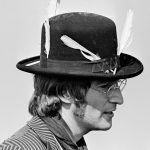Now Anthony Kennedy, who turns 82 next month, is stepping aside.
“It has been the greatest honor and privilege to serve our nation in the federal judiciary for 43 years, 30 of those on the Supreme Court,” Kennedy said in a statement announcing his decision.
His retirement will give President Donald Trump his second Supreme Court pick — a nomination that could lead the top US court to a potentially historic shift to the right.
Kennedy has cast the deciding vote in a number of historic cases, including the high court’s groundbreaking decision legalizing gay marriage in 2015, a five-to-four decision for which he wrote the opinion.
His vote, positioned at the very center of the court, gives him a place of special prominence among the nine justices.
For years, he has infuriated conservatives with decisions striking down prayer at public school graduations and upholding abortion rights, and exasperated liberals with decisions on affirmative action and campaign finance laws.
“Justice Kennedy has become probably the most powerful jurist in the entire world,” Mary Margaret Penrose, law professor at Texas A&M University, told AFP around the time of the gay marriage decision.
“Though he only has one vote, his vote literally changes most cases,” she said.
– Common sense, steeped in law –
Kennedy has taken positions that demonstrate his “flexibility” in interpreting the Constitution, lawyer Lisa Linsky said.
“His constitutional scholarship is rooted in common sense and the recognition that societies, attitudes and institutions change and evolve.”
The landmark ruling on same sex marriage was a rare decision read from the bench, underscoring the historic significance of the case, formally known as Obergefell v. Hodges.
“No union is more profound than marriage for it embodies the highest ideals of love, fidelity, devotion, sacrifice and family,” Kennedy intoned, his deep voice resonating from the court.
“In forming a marital union, two people become something greater than once they were.”
He will forever be linked with that one decision, legal scholars said.
“With this ruling, Justice Kennedy has ensured that his name will be forever linked with the recognition of equal rights for gay men and lesbians,” legal analyst Elizabeth Wydra told AFP.
“He has used language so sweeping and powerful to describe the desire for equal dignity that it brings a tear to the eye.”
But important as that case was, he is likely to be remembered as much for his role as the court’s swing vote — sometimes siding with liberals, at other times with conservatives.
– Law from an early age –
Born in Sacramento, California in July 1936, Kennedy, the second of three children, was steeped in the law from an early age.
His father was a lawyer and state lobbyist, while his mother worked as a secretary for the California State Senate, where Kennedy ran errands as a legislative page. While in high school he helped out at his father’s law practice, proofreading legal documents.
Kennedy graduated from Stanford University after having spent his senior year at the London School of Economics. He earned his law degree from Harvard in 1961.
He returned to California after his studies and took over his late father’s practice, deepening his political ties and honing his legal skills.
He became friends with another prominent California lawyer, Ed Meese, a Republican party grandee and an associate and future attorney general to then-governor Ronald Reagan.
Reagan recommended Kennedy to then-president Gerald Ford who appointed him to fill a vacancy on the Ninth Circuit Court of Appeals. And when he later became president, Reagan in 1987 named Kennedy to the US Supreme Court after his first choice, Robert Bork, failed to get confirmed. Kennedy joined the US high court in February 1988.
In April 2017, Trump’s first Supreme Court nominee, Neil Gorsuch — a former Kennedy clerk — was sworn in to fill a more than yearlong vacancy left by the death of conservative justice Antonin Scalia.
One of five Catholic justices on the court, Kennedy is deeply religious, was an altar boy growing up, and retains an gentlemanly air of buttoned-up civility.
The father of three children, he has been married to his wife Mary Jeanne for more than 50 years. DM





















 Become an Insider
Become an Insider